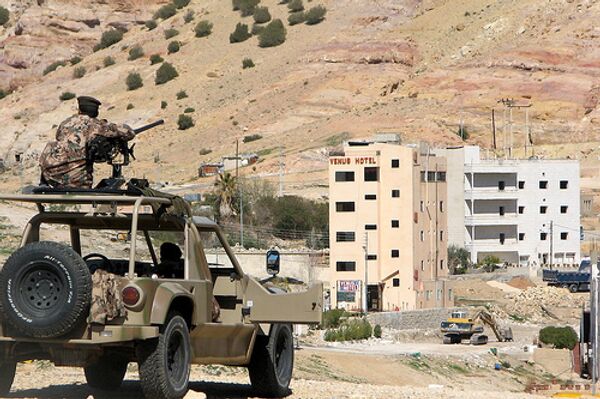By Elena Melkumyan, Doctor of political studies, Russian State Humanitarian University, specialist on the Persian Gulf region
The Middle East region, especially if viewed as lying within the borders of the Expanded Middle East (a term used by the G8 in their projects related to the region which included, besides the Arab countries and Israel, also Afghanistan, Iran, Pakistan and Turkey), is distinctive in its instability and array of intractable regional conflicts and disputes. The main threats to regional security are terrorism, the narcotics trade and nuclear proliferation. All Middle Eastern governments officially support the counterterrorist operation that the U.S.-led coalition is carrying out in Afghanistan and Iraq. Countries throughout the region, except Israel, regard the terrorist actions of Palestinian groups, and Hezbollah, as a lawful struggle against occupation, whose goal is national liberation.
Afghanistan has become the leading source of narcotics, which are imported to countries across the region, and also exported to the West. Profits from the narcotics trade finance terrorist activity. Although they have recognized the negative consequences of this expansion of the narcotics trade, political leaders in the Middle East countries continue to fail to take decisive steps to counteract this phenomenon.
The threat of the collapse of the existing system of nuclear non-proliferation directly affects the Expanded Middle East. Some states in the region are so-called “shadow nuclear states,” and Israel is considered to be among them. Israel refused to join the Nuclear Non-Proliferation Treaty (NPT) signed in 1968 thereby retained the option of nuclear weapons as a means for surviving in hostile Arab surroundings. Israel did not even change its position in 1995, when the NPT was extended indefinitely and without conditions. Although Israel does not officially declare that it possesses nuclear weapon but its status as a nuclear power has been confirmed by experts. At the same time, Israel's refusal to join the NPT makes establishing a nuclear-free zone in the region impossible.
In spite of the fact that Pakistan carried out nuclear testing in 1998, it was not classified as a nuclear state and is therefore considered among the “unrecognized nuclear states.” In the near term, it will be difficult to imagine a scenario that would see Pakistan joining the NPT, given that it considers having nuclear weapons not only its lawful right but also a useful means of retaining its place in the military and political balance with India, given the serious border disputes between those nations. This position also undermines the idea of creating a nuclear-free zone in the region.
It is Iran’s nuclear program which gives rise to the most serious concerns in the region, particularly in the sub-region of the Persian Gulf. Countries neighboring Iran (who adamantly campaigned for the establishment of a nuclear-free Middle East) are worried about its striving to strengthen its military potential. Regardless of Iran’s claims that its development of a nuclear program is for the peaceful use of nuclear energy, mistrust among regional states and the interna-tional community is growing. Relations with Iran are complicated because Iran and neighboring Arab states are involved in a whole array of disputes, and conflict situations: the territorial dispute with the United Arab Emirates over the ownership of the Greater Tunb, Lesser Tunb and Abu Musa islands, Iran’s claim that Bahrain is part of its territory, Iran’s support for anti-government forces in Yemen, which carry out operations on the border with Saudi Arabia.
The problems of fostering regional security are becoming more difficult thanks to the intractability of the Arab-Israeli conflict, chiefly on account of its Palestinian component.
Consequently, given all the existing disputes and differences between the Middle Eastern states, it doesn’t seem legally acceptable to raise a question of establishing a unified security organization that would be responsible for providing for regional security and supporting peace and stability in the region.



